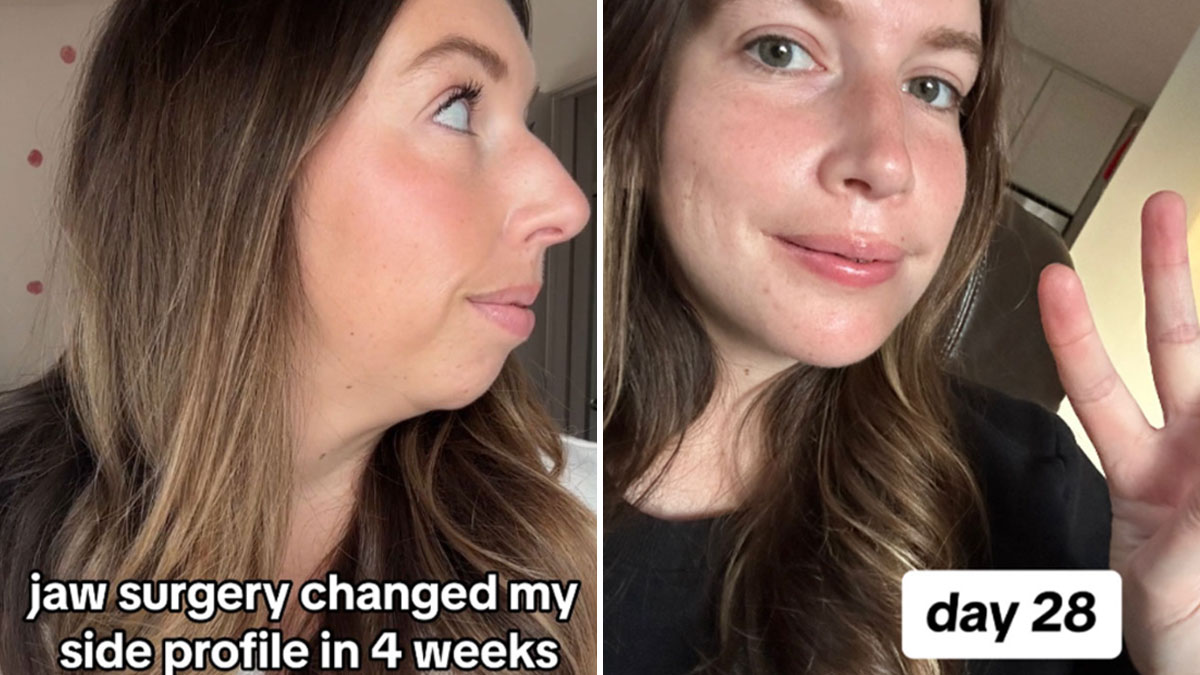
Woman Stuns Viewers With Surgery Results After Having Her “Jaw Of An 80-Year-Old” Fixed
InterviewA 29-year-old woman named Clara Ziegler shared her experience of undergoing double jaw surgery after doctors informed her that her jaw looked like that of an 80-year-old.
Having been diagnosed with juvenile rheumatoid arthritis (JRA) as a child, Clara opted for the procedure to prevent her jaw from deteriorating to a point where it could lose its function.
- At 29, Clara Ziegler underwent double jaw surgery due to severe deterioration in her jaw caused by juvenile rheumatoid arthritis (JRA).
- Diagnosed with JRA at age 10, Clara needed surgery to prevent complete loss of jaw function.
- She is now preparing for the Chicago Marathon to show that physical activity is possible even with JRA.
“I was diagnosed with JRA when I was ten after being evaluated for jaw pain and clicking. Through blood tests and scans, they essentially said my body was attacking itself, and the jaw joints were showing active inflammation,” she told Bored Panda via email.
“A few years later, at around age 16, jaw surgery was recommended as the inflammation was no longer active in my jaw, but I had stage 5 deterioration.”
Clara Ziegler shared details about her recovery process six months after undergoing double jaw surgery
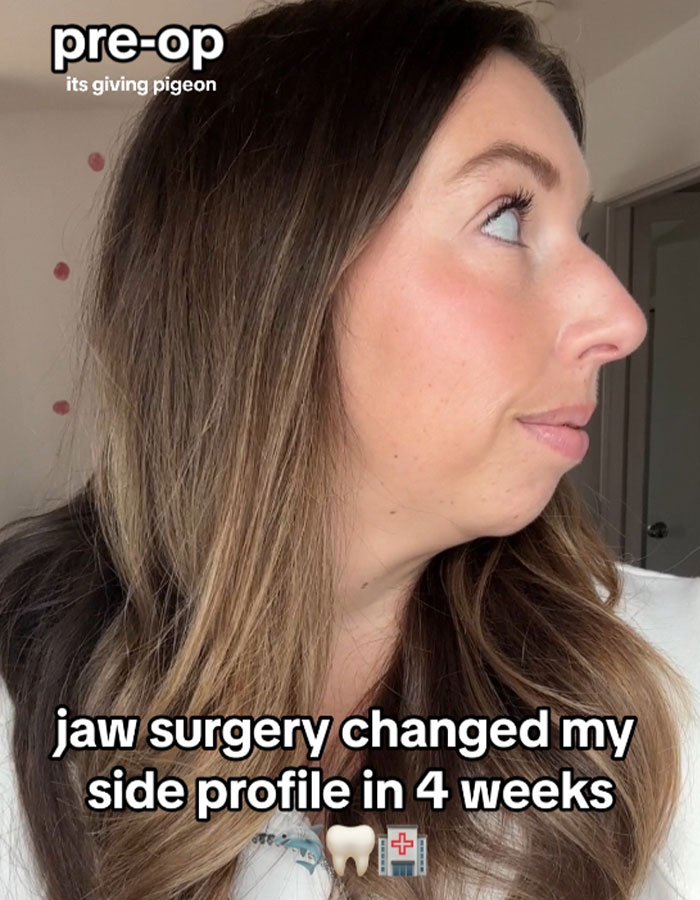
Image credits: claziegler
“Essentially, they said it looked like the jaw of an 80-year-old.”
“After having these jaw issues for so many years, I knew the prognosis was that it would continue to get worse and continue receding until a point when it could require immediate surgery if function was lost.”
JRA is an autoimmune disease, which means that the body’s immune system attacks some of its own healthy cells and tissues. It causes joint swelling and stiffness, affecting one or more joints for at least six weeks in a child aged 16 or younger, according to John Hopkins Medicine.
Though children often outgrow JRA (also known as juvenile idiopathic arthritis), this disease can affect bone development and cause serious complications such as growth problems or joint damage.
Globally, approximately 3 million children and young adults are estimated to suffer from JRA.
Clara was diagnosed with juvenile rheumatoid arthritis (JRA) at the age of ten, an autoimmune disease that caused severe deterioration of her jaw
Image credits: claziegler
Image credits: claziegler
Clara experienced a period of remission where her symptoms were reduced. However, the JRA later returned, causing her knee to swell and making it painful to perform everyday activities like walking and talking.
“[It] started presenting differently by causing my knee to swell like a balloon and [made] everyday activities like walking near impossible for a few days at a time. I took the approach of ignoring it for a while but ultimately decided to try an injectable medication to keep it at bay. It has been a miracle for me!
“I felt like it was starting to become painful almost daily doing normal activities like talking, and I didn’t want to continue feeling it every day.
“The timing in life felt right, too. Because it was such a major surgery, I never felt like there would be a ‘right time,’ but I felt stable in my life and decided that investing a few months in recovery would be worthwhile.”
“The prognosis was that it would continue to get worse and continue receding until a point when it could require immediate surgery if function was lost,” said the 29-year-old
Image credits: claziegler
Image credits: claziegler
Clara documented her healing journey on TikTok, sharing that, in the first week, she wasn’t allowed to do many of the activities that were part of her routine, such as sleeping in her own bed, chewing, and running—one of her favorite hobbies.
“The first few days were really difficult because my tongue was swollen so even swallowing water was really hard, and then, I had to try and get pills down to keep the pain controlled. I kept trying to tell the nurse in the hospital that my tongue was too big for my mouth, and she didn’t understand.
“The amount of drooling for the first few weeks was also really annoying to deal with. I went through way too many paper towels because anytime I somewhat looked down, there would just be drool.
“Something I thought would be worse was the 6-week liquid diet. Don’t get me wrong, it was absolutely not fun. There are only so many protein shake flavors to choose from, and they all started tasting bad, but it went by faster than I thought, and it made me re-appreciate food when I finally could chew again.”
The Minnesota runner documented her recovery journey on social media
@claziegler 2.5 week post op — this is how much i can talk with being banded shut. Literally craving the strangest foods because im so sick of liquids lol. Like i dont think ive ever had a whopper before but it sounds divine rn #jawsurgery #surgeryrecovery #surgeryhealing #doublejawsurgery #surgeryprep #jawsurgeryrecovery #talking #surgerytiktok #surgerytok ♬ original sound – Mark & Clara 🏃♀️🌎🦈
@claziegler sorry for the dirty mirror ✌🏻 #jawsurgery #surgeryupdate #surgeryrecovery #doublejawsurgery #surgeryhealing #surgeryprogress #jawsurgeryupdate #jawsurgeryrecovery #medicaltiktok #surgerytiktok ♬ original sound – Mark & Clara 🏃♀️🌎🦈
@claziegler officially 5 months post op!! we said goodbye to jaw spasms this month and hello to some clicking sounds 🤷🏼♀️ #jawsurgery #doublejawsurgery #postop #jawsurgeryupdate #jawsurgeryresults #arthritis ♬ original sound – Mark & Clara 🏃♀️🌎🦈
To cope with the shock of her swollen post-op face, Clara turned to humor, playfully comparing herself on social media to various cartoon characters like Spongebob’s “handsome Squidward.”
“I had to spend a long time sitting at home, so I had to find a way to entertain myself. Honestly, I felt like I would jump scare myself every time I looked in the mirror throughout the healing process.
“Humor definitely kept my mind positive, which was huge not only for my mental health, but I do believe having a positive mindset aided in the healing journey.”
After the procedure, Clara was put on a six-week liquid diet because she was unable to chew
Image credits: claziegler
Six months after her surgery, Clara said her recovery went “extremely well.” She still has some reduced sensibility in her bottom lip and half of her chin, as well as some spots in the roof of her mouth where nerves haven’t regenerated. However, these changes don’t affect her like the pain she experienced before.
“I’m still getting used to how different I look, and finding my smile again has been an ongoing process.
“I’m happy to report I just had my braces removed, which marked a huge milestone in the journey to get my bite aligned and complete post-op!”
Image credits: claziegler
Clara also emphasized the importance of doing thorough research and taking the time to find the right surgeon for the complex operation.
For anyone planning to undergo jaw surgery, she recommended assessing the “risks versus rewards” aspect of the procedure and joining online communities to learn from others’ experiences.
The Minnesota resident is now preparing to run the 26.2-mile (42-kilometer) Chicago Marathon on October 13. Next year, she plans to fly to England for the London Marathon, which covers a similar distance and raises money for charity.
“I started running because I wanted to show that even with JRA, you can still do physical activities, and it’s been a rewarding challenge to train for this marathon.”

 Dark Mode
Dark Mode 

 No fees, cancel anytime
No fees, cancel anytime 


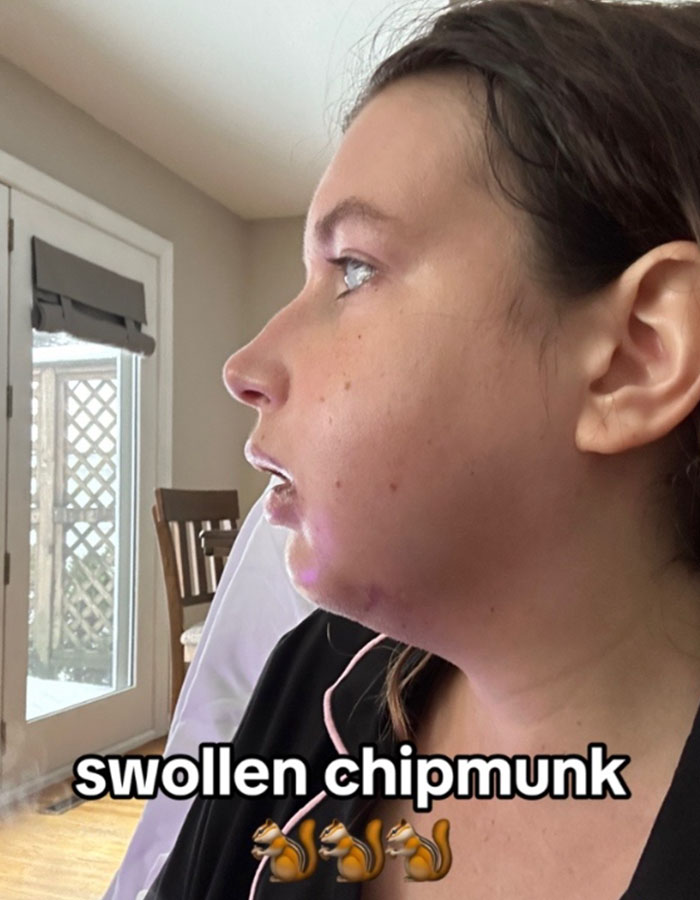
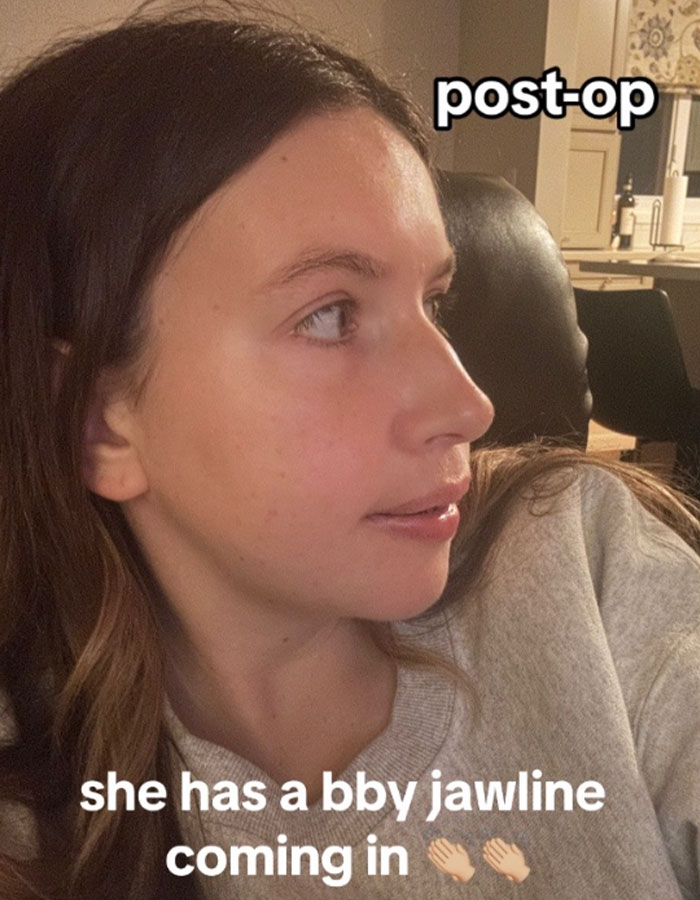

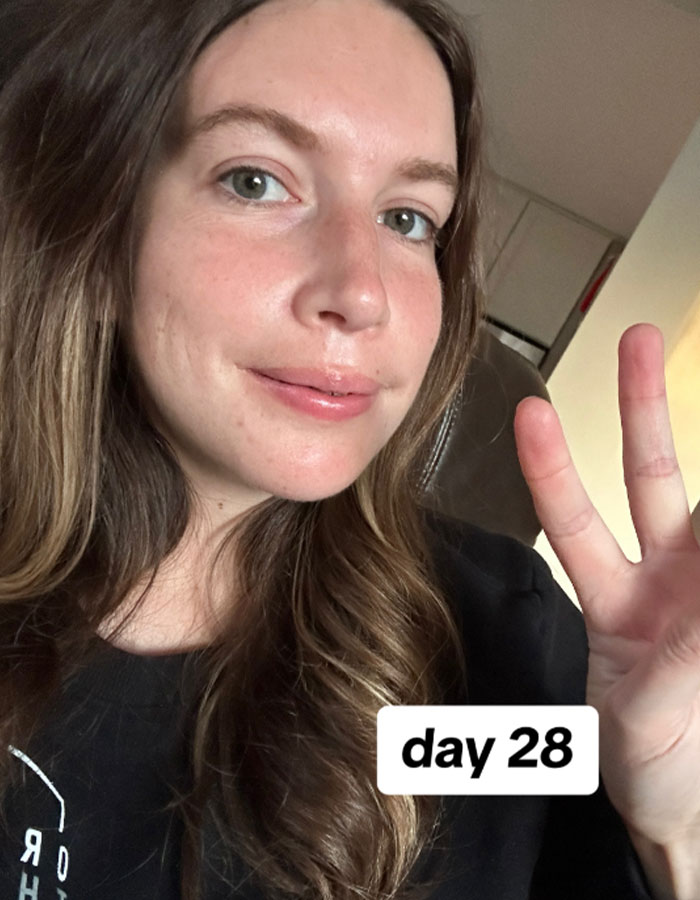
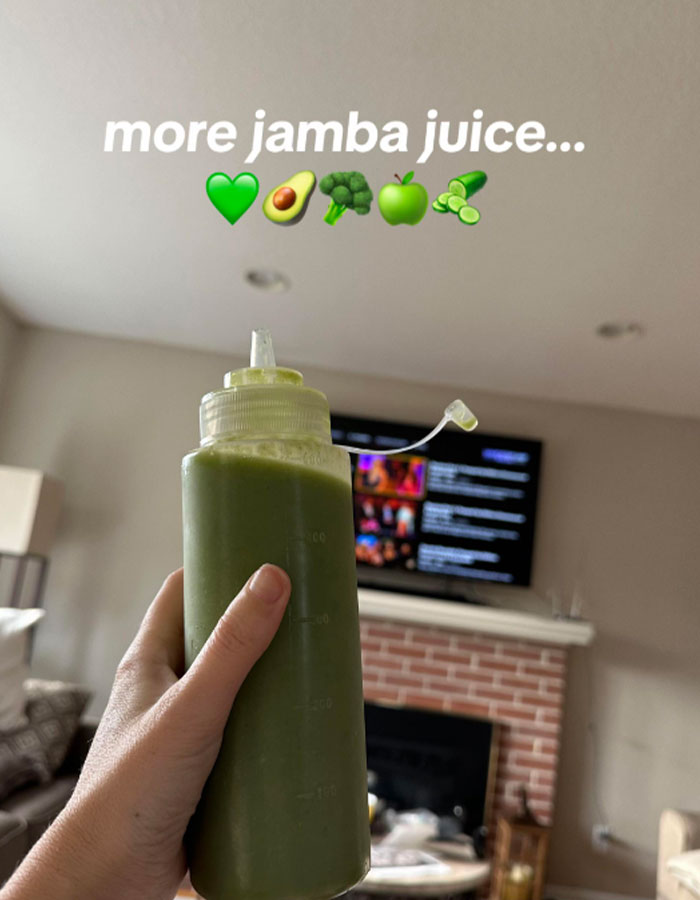
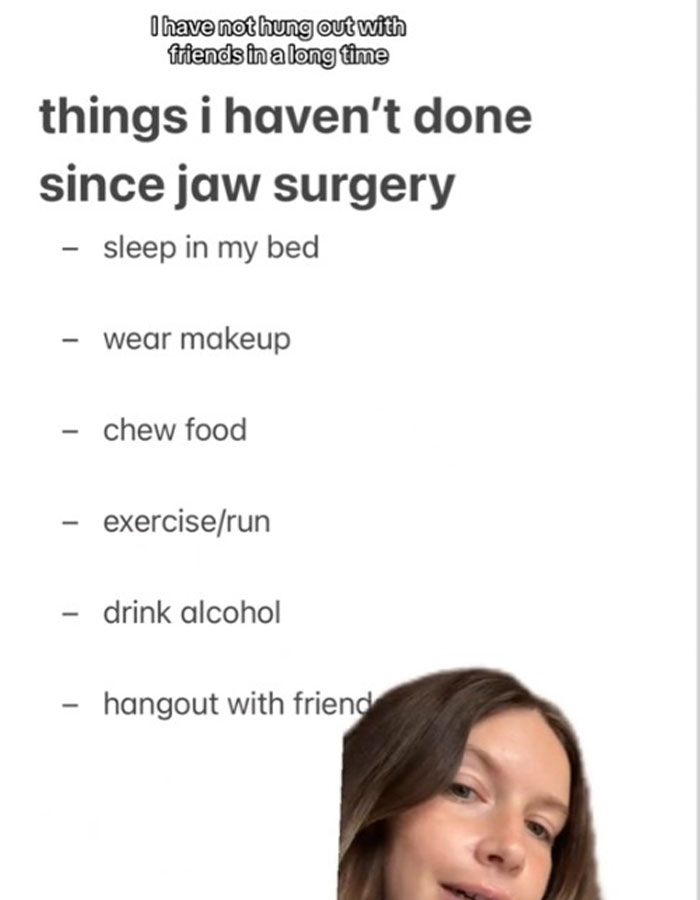









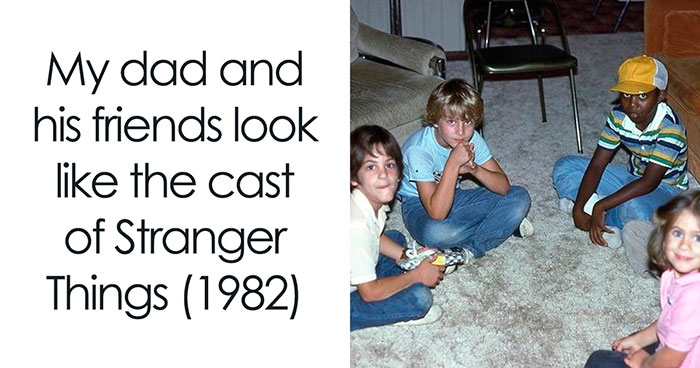



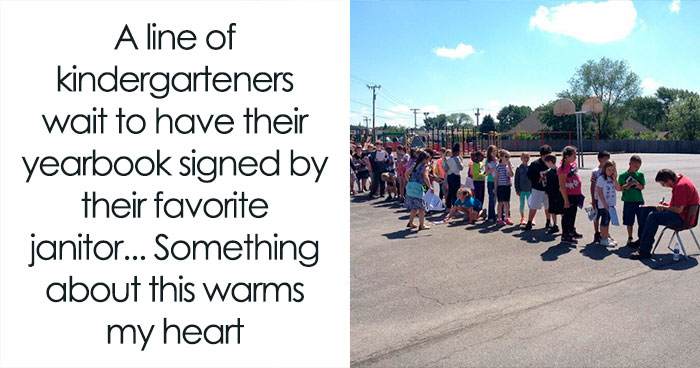
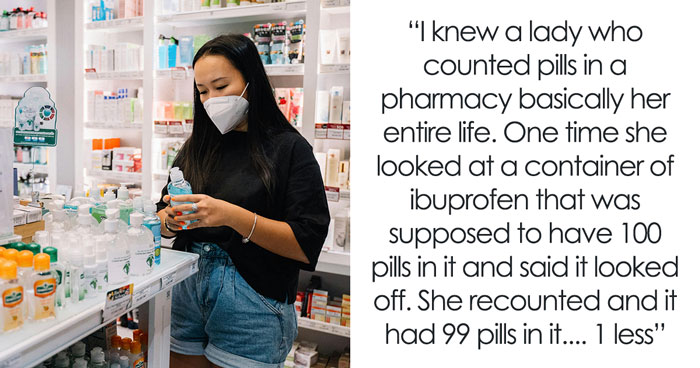



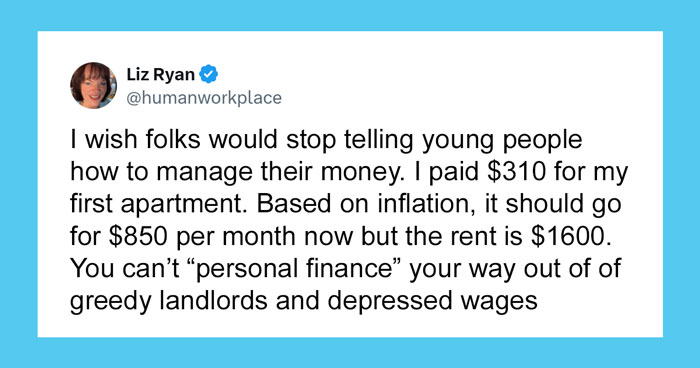

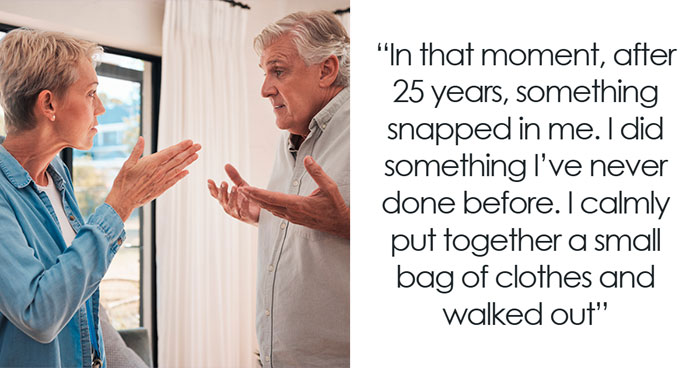

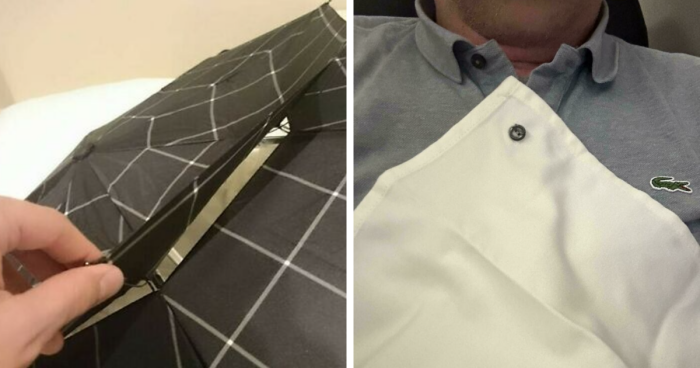
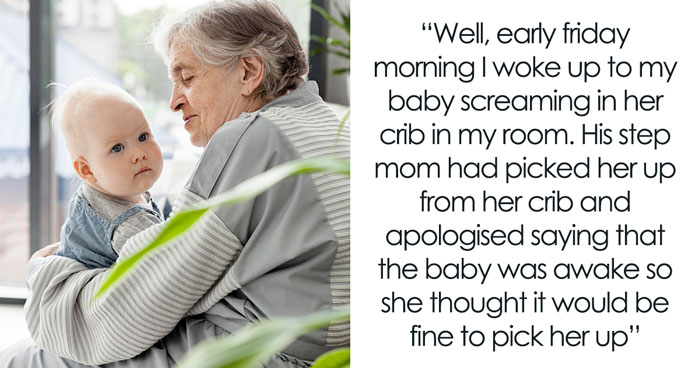
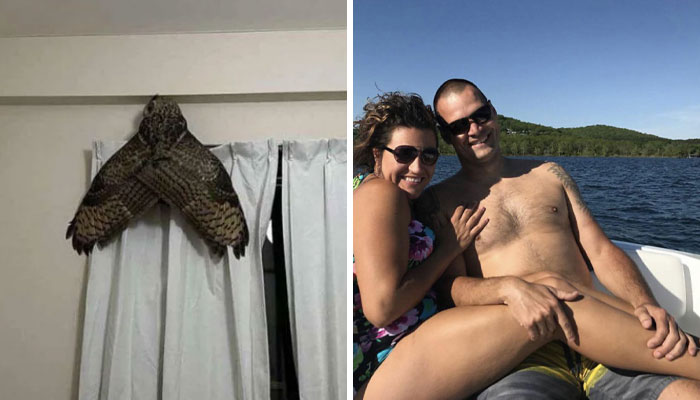

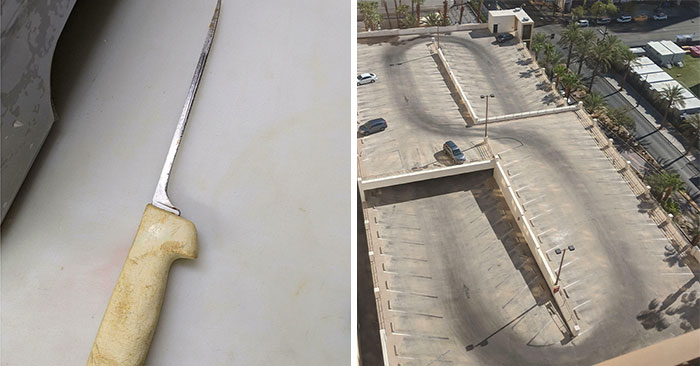

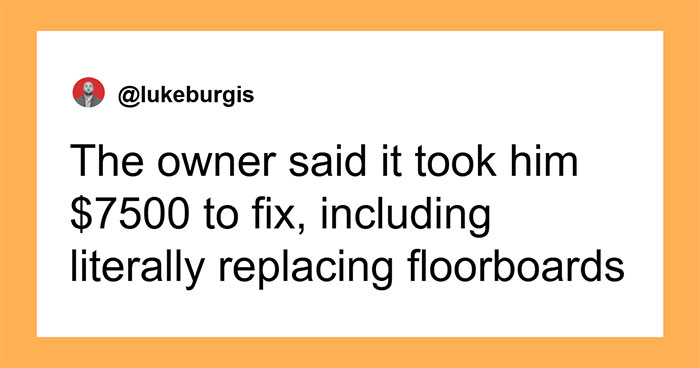
20
0